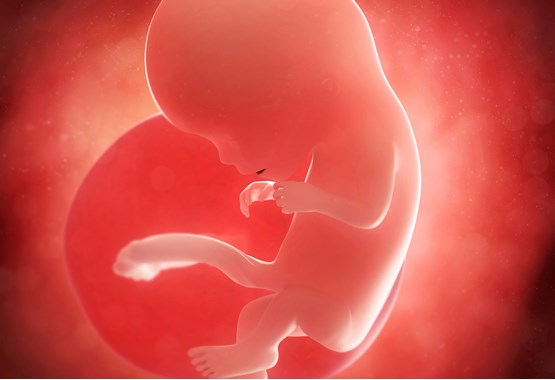Life throws some odd challenges to a person sometimes, challenges that cause a person to be presented with an opportunity to change their mind on a particular issue. This could be a change of mind on a political, cultural, spiritual or artistic matter, but in my case my change of mind was on the subject of abortion.
As regular readers will know I used to be very much on the political Left, although for most of the time on the old style class-based Left rather than the far Left. My move away from the Left was gradual as I started to understand the damage that left wing policies had done over the years to my nation, my family and myself. There were a few discreet and notable occasions when I ran up against the wall of leftist authoritarianism which caused me to ask deeper and more probing questions about left-wingery, but in the main, the process of moving away from the Left wasn’t a sprint, but instead was a marathon.
However, when it comes to the matter of abortion I am very very clear as to the point in the chronology of my life that I changed my mind and started to think that abortion, if not completely banned, should be much more heavily regulated and restricted by society. That moment when I thought I needed to reassess my view on abortion was roughly three and a half years ago. This troubling ‘eureka’ moment happened when I was watching in wonder at the ultrasound image of my child, the child that my wife and I had prayed very hard for, in the womb.
I came out of the sonographer’s room at the hospital astounded at the miracle we had seen. My wife and I had seen our son (for we now knew that Laughing Boy was indeed a boy) moving and kicking and responding to the pushes and prods on the ‘bump’ that the sonographer did. On the way back from the hospital, I ruminated on just how active pre-birth Laughing Boy really was and how much of himself already seemed to be there, despite having six months to go before birth.
This realisation that a 12 week foetus is much more developed than I had previously been led to believe, caused me to ask deep questions about the issue of abortion. Previously, when I was on the Left I had very much bought into the idea of a woman’s absolute right to choose whether to progress with or terminate an unwanted pregnancy. The idea of ‘her body her choice’ seemed to make a lot of sense to me at the time. It fitted in well with my understanding of the concept of female emancipation, that a woman should be no more forced to continue a mistaken pregnancy than she should be forcibly married.
The experience of watching Laughing Boy kicking the same merry hell out of the uterine wall as he does out of a football or a balloon now that he’s three years old made me think and seek out opinions on abortion that were different from the ones that I previously held. I didn’t always agree with these anti-abortion views, but they were thought provoking and in some cases gave me information that challenged some of that put out by the Left and which I had previously accepted with little question.
What I found when I listened to and examined voices that ran counter to my previous beliefs, voices that were both secular and religious, provided enough evidence for me to say that the concept of ‘her body, her choice’ is inaccurate and probably far too broad. Firstly, the foetus isn’t of the woman’s body, it may reside within it, but it is separate. It is so separate in fact that early foetal cells have to take biochemical precautions to avoid being seen as ‘alien’ by the woman’s body after implantation in the uterus. It is different from the pregnant woman’s body, a separate potentiality of independent life. Terminating a pregnancy is therefore not wholly ‘her body, her choice’. Secondly the term ‘her body, her choice’ can only really apply up until a certain point in a pregnancy. A woman cannot for example murder her newborn baby, it’s considered as morally and legally wrong and in Britain we used to hang women for doing just that. ‘Her body her choice’ is a qualified statement not an overarching and unqualified one. It most certainly applies pre-conception as a woman can choose not to have unprotected sex with a man. I also have little moral or ethical problem, based on the information I have at present, with immediate post-coital contraception, such as the morning after pill, that also for me comes fully within the bounds of ‘her body, her choice’.
But, it is after the embryo attaches itself to the uterine wall that I start to become more ethically troubled with the idea of ‘her body, her choice’ taken to its absolutist form. Past this stage there is then the potentiality for independent life for the foetus and there start to appear many moral and ethical questions that would not have occurred prior to implantation. After implantation we start to get into the areas of a balance of rights, the rights of the foetus verses the rights of the woman who the foetus lives within and that is always going to be a tricky question that different people may have a diversity of views on.
For myself, I drew the conclusion that Britain should not return to the days pre-1967 when practically all abortion was illegal and only those with considerable resources could procure a bent doctor to perform such as procedure safely and discreetly. I think that a return to such a culture of abortion prohibition would negatively impact on the rights of women to control their own bodies and that is something I don’t want. Abortion should remain legal, but because it is an issue that affects both the life of the adult woman and the potential life of the foetus, restrictions should be placed around its use.
Post-implantation abortion should not be treated routinely as a form of contraception, this is the sort of culture that was promoted by Communist nations and it lead as it often does to a cheapening of the value of human life. Elective abortion should not be celebrated as some celebrities appear to be celebrating it, but instead should be seen as marking out a failure by a couple to do the right thing and take contraceptive precautions. Abortion should be the medical port of last resort.
With greater knowledge of how the foetus develops and far widespread availability of contraception and devices to ascertain pregnancy very early on with accurate tests, there should be no excuse for allowing elective social abortions over ten to twelve weeks gestation and some of those who I have discussed this matter with believe 8 weeks should be the limit. Medical abortions for serious foetal abnormalities or defects are a different matter and society should permit later abortions in these cases for the people that choose to go down the route of terminating a pregnancy for this reason. I deliniate between social abortions and abortions for medical reasons because there are some congenital conditions which can only really be accurately diagnosed at 22 – 24 weeks although other foetal abnormalities can be diagnosed earlier. I am not sure that I completely stand with the crowd who believe that life begins at conception, as it is not independent life at this stage, but only a potentiality for such life. But later on in pregnancy when the foetus is becoming much more human, then I believe that in the case of a healthy pregnancy and with a healthy foetus, then abortion should be restricted to below the first trimester and that after this time the balance of rights should shift from the woman’s rights to the foetus’ rights.
I have come to believe after looking at much evidence and opinion about abortion and my experience, vicarious of course as I am a man, of the miracle of pregnancy and birth, is that abortion is a necessary societal evil. I don’t like it, abortion is a nasty process, much nastier than pro-abortion advocates would have you believe, but in some limited circumstances it may be the right and proper thing for some women or some couples to choose. In a way it is a practise that is on a similar moral plane to the death penalty and as such should be used sparingly and only when there is no other course of action to be taken. Abortion should only be an option when it is absolutely necessary to save the physical or mental health of a woman or to spare a severely physically or mentally impaired baby from what may a truncated existence dominated by pain or agony.
I’ve come to the conclusion that British abortion law needs radical reform to take into account what we now know about foetal development. Twenty four weeks is far too late to my mind to allow elective social abortions, as the foetus, provided that it is healthy, has already developed to such an extent that it can be termed human with all the rights that this status brings with it.
I would prefer that abortion didn’t exist, that it wasn’t an option on the table, but for that to happen there must be no more contraceptive failures or errors, no bad choices of sexual or romantic partners and no tragic foetal abnormalities. Until that unlikely day comes and unwanted pregnancies are a thing of the past and every foetus is healthy and wanted, then abortion should continue to remain legal, but every possible step should be made to ensure that this procedure is not necessary. Our children need to be taught about the awesome responsibility that comes from being a parent and that they must avoid becoming parents either at the wrong time or with the wrong partner as the new life will have to take priority over everything else in those individual’s lives.
Both the contraceptive pill and barrier contraceptives are readily available and cheap and we have a population that is vastly more educated about the workings of the human body than ever was the case in the past. Because of that I feel that it is right and proper to look at reducing the time limit on elective abortions, whilst keeping the present limits for medical abortions where either the mother’s life is in danger or the baby is likely to be born with catastrophic and life-limiting disabilities.
We as a society should allow elective abortions, but they should be done at a time in the pregnancy before an appreciable level of sentience has developed in the foetus in order reduce the moral harm that comes with taking a human life without good and sound reasons. This is why I believe that ten weeks or less should really be the end point where elective social abortions should be allowed.
I know there will be many people, both in the anti-abortion and pro-abortion camps who will no doubt vehemently disagree with my compromise on this issue, but that is the position I have come to through reading and discussion with others. Those who are anti abortion will not accept my partial rejection of the life begins at conception argument and those who are pro abortion will attack me because as they believe that I am in favour of removing women’s choices. But this is the position that I find most practical and moral as regards abortion, one of allow, but not encourage the practise.
As I said earlier in this piece, my views have radically changed on the subject of abortion from what they were. No longer do I use the pro abortion ‘clump of cells’ argument for a 14 week or 20 week foetus as the evidence just isn’t there that the foetus is a mere clump of cells at this stage. However neither can I accept the argument put forward by the anti abortion camp that every pregnancy should be carried to full term.
Abortion is a tricky moral subject with competing rights of both woman and foetus at the heart of this issue. If there was ever a matter that needed to be looked at on a case by case basis then it is surely abortion? The hard cases, the tiny number of pregnancies that are the result of rape or incest or the small amount of cases where women didn’t find out they were pregnant until 18 weeks, should not be used to either justify all abortions or to ban all abortions.
Ultimately, if we want to reduce the number of elective abortions, then we need as a society to behave more responsibly when there is the possibility that our actions could produce another life. Both women and men need to take care to use effective contraception and have access to and a willingness to use post-coital contraceptive methods. After all I myself managed many years of sexual activity without managing to get the ‘wrong’ women pregnant and I waited until such a time as I found the woman who I could easily point to and say ‘this is the woman I want to be the mother of my child’ before I abandoned contraception.
But, I can’t see how we can get to this stage where people become more careful unless there is a major shift in attitudes to unplanned pregnancies from both women and men and from society as a whole. Until there are some negative consequences for those individuals who create new lives all too easily and without forethought or preparation, consequences that the health and welfare systems currently shields people from to a large extent, then we will continue to see large numbers of elective abortions.
Although I have become more strict when it comes to my own personal view of abortion, much stricter than I ever was before I was blessed with a child, I have also come to see that this is not a problem that can be looked at in isolation. Abortions happen for a reason, because people are being stupid and not taking contraceptive precautions, or pregnant women being abandoned by useless and worthless men, for medical reasons or some other life catastrophe.
We cannot reduce the number of elective social abortions until we tackle the reasons that cause women to see abortion as an option. Ideally I’d like to see no abortions, but this is not a practical wish. Some people are not capable or ready for a child and not every couple can cope with the sort of horrendous congenital disabilities that cause some foetuses to be aborted. Sexually active and fertile people taking responsibilities for their own actions and the lives that these actions may create, along with better pre-conception genetic counselling and testing, may go a long way to reducing the need for both social and medical abortions. At the end of the day, whatever your position on the abortion debate, whether pro or anti, I think we all would agree that it would be a good thing to reduce the number of abortions to the smallest practically achievable number.





